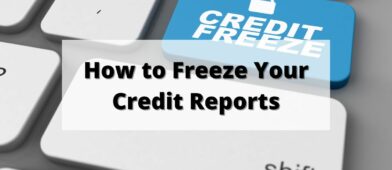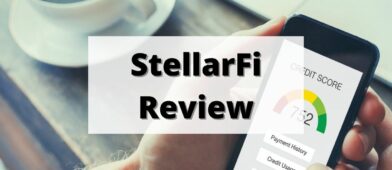
Ten years ago, there were no solid personal finance apps out there. If you wanted to track your money, you didn’t have many options beyond websites like Google Finance. I got my start tracking our budget and net worth with a spreadsheet. I would learn about Intuit’s Quicken software but it felt silly to pay for software to help me save money. It wasn’t until later that other personal finance tools started to appear.
The best personal finance software works like a money management app that gives you an instant snapshot of your financial situation in seconds. A lot of the problems we face when dealing with money is how much time it takes to stay on top of things. A good personal finance app will help you save time and money.
Earlier this year I polled our readers for their “must-have, can’t live without” money apps. I compiled their responses and made the following list of best personal finance software (most of which have a mobile app).
Table of Contents
Best Money Management App – Empower Personal Dashboard

A financial dashboard is a place where you can see everything involving your money in one place. Your assets, your liabilities, your net worth – all your financial accounts visible on one convenient page.
This is important because when that information is easily accessible, it’s easily remembered and understood. We use it to pull in all of our data, though we ignore the credit card debt piece because we pay off our bills every month in full.
What’s easier – logging into one account or logging into a dozen?
When it comes to a financial dashboard, the clear leader is Empower Personal Dashboard (formerly Personal Capital). It has a rich suite of tools built around investments, with a nod towards expense tracking similar to Mint, so you can get a sense of where everything is at a moment’s notice. If you’re interested in a consultation with a financial advisor, they have that built-in as well and it’s something that helps them stand out from other similar services. It’s how Personal Capital makes the money that supports the free tool.
This app is for you if: You want an instant snapshot of your finances, from your investments to your budget, in one place. Empower Personal Dashboard is free.
👉 Learn more about Empower Personal Dashboard
Best Investing App – Robinhood

Robinhood is a stock brokerage that offers commission free trades through their app or web interface. They’re like any other brokerage, they use Apex Clearing Corporation, are a member of FINRA, and have SIPC insurance for up to $500,000 like any other brokerage. There is no account minimum, no maintenance fee, and you can even trade crypto if you’re so inclined (I am not).
They make money by offering a Robinhood Gold subscription service that gets you margin and after-hours trading. If you pay for Robinhood Gold and have an IRA with them, they will even give you a 3% match on you contributions – which is a great way to get even more into your Roth accounts.
If you want to trade stocks, I find it difficult to argue against a Robinhood and their free trades. I don’t use Robinhood because most of my investments are just in index funds at Vanguard. I just use Vanguard’s app but most of the time I just log onto the website to manage it.
For a limited time, you can get a free share of stock from Robinhood.
Best Free Budgeting App – NerdWallet Budgeting App

We wanted to break up the “budgeting app” recommendation into two – a free and a paid one. The best free budgeting app right now has to be NerdWallet’s budgeting app. I played with it following the news that Mint was shutting down (and Credit Karma was a bad alternative) and was pleasantly surprised by the features it offered.
It’s absolutely free so you can download it and play with it yourself but it offers basically everything you could want in a basic budgeting app. You won’t be bombarded with ads while you use the app (though they will send you emails pitching various products and services), which is nice considering it’s completely free.
As for budgeting tools, you can track transactions, categorize them, edit them, and then watch your cashflow so you know where your money is going. You can tell it when your bills arrive (they will look at recurring transactions and try to guess, but you have to give it some help) and it’ll help you with planning for those.
You can’t split transactions across categories and NerdWallet updates your transactions every few days. They don’t update every time you log in.
Our review of Nerdwallet’s budgeting tool goes into greater detail with more screenshots of what it looks like.
Best Paid Budgeting App – You Need a Budget

If you want to change your budget, You Need a Budget (YNAB) is one of the most powerful tools you can use because it does more than track your expenses – it actually helps you build and stick to a budget.
One of the biggest challenges in money management is in near-term planning. What are you going to do next week and next month?
Retirement can be decades away but you are spending money today and tomorrow. By getting the next month right, you go a long way towards getting your money situation under control.
YNAB has a four rule methodology that has worked well for its users.
- Give Every Dollar A Job
- Embrace Your True Expenses
- Roll With The Punches
- Age Your Money
Another reason why YNAB is powerful has to do with its educational tools and community. You will not find this with financial tools like Mint. There are no Whiteboard Wednesdays to help you understand your money a little better. This is what separates them from the pack in many ways. Our You Need a Budget review goes deeper into the app and the company if you wish to learn more.
We list Empower Personal Dashboard (formerly Personal Capital) first on this list but if you want a budgeting app and you are able to pay a fee, we consider this the best alternative to Empower Personal Dashboard for budgeting.
This app is for you if: You want to transform your budget and get your spending in line with your financial goals. YNAB costs $6.99 a month after a 34-day trial.
👉 Learn more about You Need A Budget
It’s this methodology around the tool that makes it powerful.
Best Support Tool – Tiller

Tiller is a service that will connect with your bank and credits card to pull daily transaction data into a sheet on Google Docs. No other service out there offers this. You can choose to start from half a dozen templates or roll your own, but Tiller will update it automatically from 100,000+ financial institutions.
Tiller automates your custom spreadsheet so it fits you perfectly. Don’t change the way you do things to match a tool, add Tiller and bring your spreadsheet into the 21st century.
Tiller is a monthly subscription but it won’t inundate you with advertisements or pitch you on their financial planning services as an upsell. (to be fair, other companies need to do that because they are free – the bills have to be paid!)
You get the customization of a financial spreadsheet but the automation piece so you don’t need to login to all of your accounts and update everything manually. Removing that hurdle makes money management that much easier. They offer a free 30-day trial.
This app is for you if: You love spreadsheets or have one you’ve tailored but need a tool to help you pull the data for you. Tiller costs $6.58 per month ($79/year) after a 30-day trial. (here’s more about Tiller)
Best Micro-Saving App – Acorns

One of the latest innovations in personal finance apps is the idea of a micro-savings app – where you can automatically save small amounts of money and have it invested in the market. The idea is that these apps will figure out how much they can transfer into an investment account without you, or your budget, realizing. It’s less active than traditional saving but more effective if you’re the type of person who doesn’t actively manage your budget daily.
One of the best in class is Acorns, which doesn’t rely on a black box “guessing” how much to save. When you make a purchase, the amount is rounded up and transferred. This predictability is often seen as a better process than some other apps, which “guess.” Guessing can be a little scary.
They also have a “Found Money” feature with some partners where if you purchase with a merchant, they may contribute a small bit to your Acorns account.
Here is our full review of Acorns.
Summary
There are a lot of apps, many of them free but some of them paid, that will help you save time, save money, and save gray hairs.
Want to hear something funny? When we surveyed of our readers, the number one “app” was Microsoft Excel. Far and away the most popular application for anything – budgeting, financial dashboarding, net worth, whatever category you picked – it was Microsoft Excel.
Microsoft Excel is all about finding a template and customizing something that fits your exact needs. It can be a lot of work but that hands-on interaction means you know the data is pristine. You can rely on tools like Tiller to pull the transaction data too so you get the automation (it works with Google Docs).
I use Microsoft Excel to track our net worth, with Empower Personal Dashboard pulling the data. It’s a nice little set up but it takes some time to get going.
The apps on this list are pre-built, faster to get into, and free. If you’re starting from scratch, these apps will get you there faster but will not fit you like a glove. Excel is like a custom-tailored suit, these are off the rack.




Roger says
I use Mint to track spending and it works great! I just wish they would offer a paid version that would do more and get rid of advertising.
Sam says
Thanks for this article. I am looking for an alternative to the aged Quicken desktop. I recently stumbled upon Buxfer and found the UI to be the most intuitive I have seen out of all SaaS products I have recently evaluated. However, I am discovering that this product might not be under active development. Can you provide any insight ? Thank you !
I completely forgot about them – I remember them as a place to transfer money/pay friends. Now it appears they pivoted or something – because it’s now a pf app?
I did some digging and it appears the founders joined Facebook back in the late 2000s, which is eons ago, but they’re still listed as part of the team on Buxfer.
To be 100% honest, not knowing what’s what makes it hard to trust the service will be around. At least with Quicken you know there’s someone behind it (same with Personal Capital, Mint, et al.). Uncertainty is not good.
Sam says
Yes, I agree and was disappointed to see that it was (apparently) abandoned. Robust search/filter…and the ability to act upon the filtered set of records. Surprised to find that this was lacking in all other products. Which makes me wonder, can you tell me if Personal Capital has that sort of capability ? (i.e. “find all the records that have “t-mobile” in the description and then categorize/tag them accordingly) ? Would love to know of another SaaS that can do that.
Frank Kempton says
Great list Jim! I’ve used a lot of these over the years. I personally also like MoneyStrands for its simplicity and ease of use. It has helped me control my finances. There is also Venmo which is a free digital wallet that lets you make and share payments with friends. Cheers mate!
Damn Millennial says
I have used mint in the past and really enjoyed it. What I realized it was doing though was making me check in on my portfolio much more then needed. This would lead to rethinking strategy on days it does good vs. bad etc. For me the best move was to not be on any tracking that is on my phone and stick to quarterly calculations to check progress. Have you found using to many apps can be addicting in the same way social media can?
MoneyMatters says
Actually, Quicken is no longer the buy-once software tool you described. The new owners announced a change last year to a yearly fee model.
Ha you are correct, I have to amend it! Thanks!
Scott says
We have used Mvelopes for 12 years and it has changed our whole financial landscape. Here’s what I can’t find in any other financial software that Mvelopes has — the ability to set aside money into easy to see virtual envelopes, always showing in a column at the left with their $ balance, that you can move incoming transactions into, AND the cool thing it does with credit card transactions. I can create and edit envelopes (some of mine are: groceries, electric, fuel, cell phones, Geico, mortgage, home repairs, etc.). You can use basic ones they provide or create own (and you can edit them). I can use the envelopes for regular bill-paying and to “save up” for something that’s only an occasional expense or that I want to purchase at some point (one could be created and labeled “TV” for instance and funded regularly, little by little, till I have enough set aside in that envelope to purchase). Mvelopes automatically downloads transactions from my various institutions (like most financial softwares do), including credit cards, and I can move those transactions into my envelopes. I can also set up various funding plans and name them–paycheck 1, paycheck 2 or whatever (basically it’s the budget plan for each paycheck). With one “fund” I send the allotted $ amounts that paycheck represents into the various envelopes they go in, and the new balance for each envelope shows next to it. When a spending transaction comes in (from wherever–bank, credit card, I’ve set them all to download to Mvelopes), I move it to the envelope it goes in and it deducts it automatically from the balance in that envelope and shows the new envelope balance next to it. Another thing it does automatically in this process is with credit card transactions and this is awesome. When I move a credit card transaction to one of my envelopes, it reflects the new balance there as I said, but it also puts the corresponding $ into a separate envelope for paying the credit card. This might sound confusing, but it’s really not–the software does it for you. It helps make it easy to pay credit cards in full every month, and to know what we’ve actually spent from credit card use and where we are financially and with credit card use at at any given time– credit card transactions aren’t out of sight/out of mind (that used to get us in trouble sometimes, before envelopes). The impact of credit card use is taken into account by the software. I look around from time to time at other financial software because Mvelopes can get slow at times and have glitches. They always fix my glitches fast via an online chat, but I wonder from time to time if someone has done the same thing bigger and better somehow and I like to research things. But I can’t find ANY that do these two things, plus all of the ability to customize (when I want it). Both the automatic envelope system and the credit card thing have been way too VALUABLE to give up, and have made an unbelievable difference for us. Mvelopes has actually helped me live out my budget, NOT just to develop a budget and list what it is. We’ve gotten completely out of debt and always have a good handle on our finances (that wasn’t the case before Mvelopes). I know two others that use it, and it did the same thing for them. I’m guessing that financial software reviewers don’t understand or “get” these two features of Mvelopes, or a whole lot more would be said about it. I’m willing to live with some slowness and glitches that at least have quick chat fixes in order to keep these features. Maybe other financial software is slow at times or glitches at times, and Mvelopes has too many cool features to give it up, until other programs catch up and get these features in an easy to see and easy to use way.
Norma says
thanks for the great description, I will try it out!
Lisa says
Yes, thank you so much!
Janis C says
Excel is great until you grow your business. I was fine until I got my second rental apartment, then it become more complicated – copying formulas and structure between sheets inevitable brings pain and suffering and errors. I prefer specialized apps over Excel any day and it is fine to have specialized app for particular need. E.g. I use Landlordy app for tracking my rental income and expenses, Mile IQ for tracking my travel, HoursTracker for tracking my hours. All of them are in so many ways better than any spreadsheet can be thanks for integration with smartphone capabilities like camera, email/messages integration, auto-location tracking etc.
When asking readers, it was in the context of a net worth tracking tool. I agree with you that for other tasks, like tracking rental income/expenses, mileage, etc; you will do better using something else.
Mark says
If you are already using Personal Capital, why bother with Excel to track Net Worth? Personal Capital will keep your Net Worth up to date every time you log in.
I used Excel from day one and I like the continuity. The spreadsheet nerd in me really likes seeing so many rows and I don’t want to abandon it. I know the data is in PC, I know it’s updated to the minute, and I know it has pretty charts… but gosh darn it I want my spreadsheet anyway. 🙂
Elizabeth Hogan says
I am looking for an alternative to Quickbooks, which I have liked very much, but times changes, and looking at other options.
I don’t know a lot about Quickbooks, as I’ve never used the accounting software, but I’ve heard good things about GnuCash, which is open source accounting software that also happens to be free.